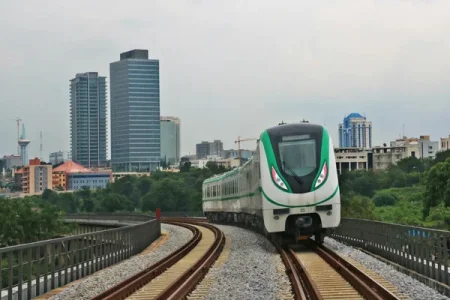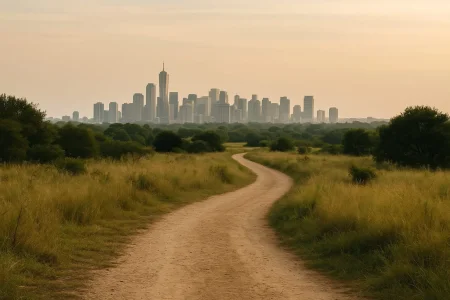
The Federal Government announces a two-month free ride promotion on the Abuja Light Rail system, starting Tuesday, to ease transportation woes and promote sustainable mobility. FCT Minister Wike cites President Tinubu's "renewed hope agenda" for residents.
In a move aimed at easing transportation woes and promoting sustainable mobility solutions, the Federal Government will offer free rides on the newly inaugurated Abuja Light Rail system for two months, starting Tuesday, according to the Federal Capital Territory (FCT) Minister, Nyesom Wike.
Speaking at a ministerial press briefing reviewing the 12-month performance of President Tinubu's administration, Wike disclosed that the light rail system, set to commence commercial operations on Tuesday, will provide complimentary rides to all commuters for the first two months, as part of President Tinubu's "renewed hope agenda" for residents of the FCT and its environs.
"For those who are saying that the rail system had already been commissioned, don't make a mistake. What was earlier commissioned was the building. We want to commission commercial operations on Monday," Wike clarified.
The minister highlighted the potential benefits of the light rail system, stating that the journey from the city center to the airport, which typically takes over an hour by road, will be reduced to a mere 20 minutes by rail.
"Seeing is believing. Go on Tuesday. We are going to allow for free rides for two months. You know, Mr. President, he can even say extend it to six months to reduce the pain of our people. That is a renewed hope agenda. When you say something, you do it," Wike added, hinting at the possibility of extending the free ride period further.
The announcement is a welcome relief for commuters in the nation's capital, who have long grappled with traffic congestion, air pollution, and limited public transportation options. Transportation experts and urban planners have lauded the initiative, citing its potential to influence commuter behavior, reduce carbon emissions, and promote sustainable urban mobility.




